From the Chicago Reader (July 5, 1991). –J.R.

TERMINATOR 2: JUDGMENT DAY
** (Worth seeing)
Directed by James Cameron
Written by Cameron and William Wisher
With Arnold Schwarzenegger, Linda Hamilton, Robert Patrick, Edward Furlong, Earl Boen, and Joe Morton.
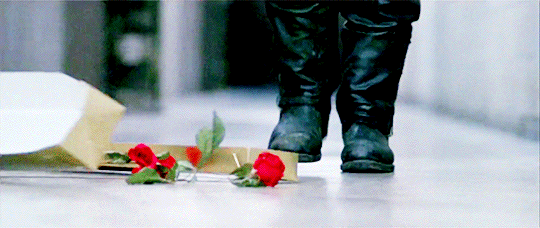
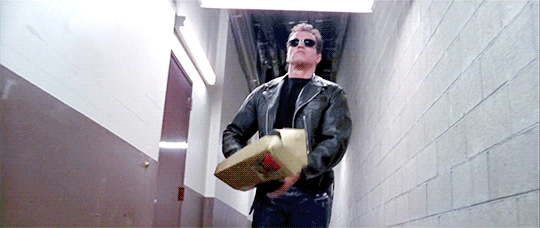
As much a remake as a sequel, James Cameron’s Terminator 2: Judgment Day begins, like The Terminator (1984), with a postnuclear Los Angeles in the year 2029, a world ruled by deadly machines where a few scattered remnants of humanity struggle to survive. Then the film leaps backward in time — not to 1984, when most of The Terminator took place, but to 1997, when the Terminator materializes in virtually the same mythic fashion, crouched naked like a Greek god, before rising and setting about finding the proper attire. This time he enters a bikers’ bar, where he quickly appropriates the clothes, boots, and bike of one tough customer and the shades of another, blithely smashing the skulls of whoever happens to get in his way.
The thrill and beauty of the Terminator, both as a character and as a concept — the ultimate Schwarzenegger role, against which all his other roles must be measured — resides in the excitement of witnessing a brutal, dispassionate machine, a weapon slicing impartially through metal, flesh, or bone en route to its unambiguous goal. Read more
From the Chicago Reader (February 28, 2003). — J.R.
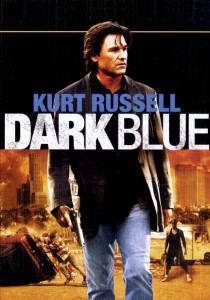
Dark Blue
* (Has redeeming facet)
Directed by Ron Shelton
Written by David Ayer and James Ellroy
With Kurt Russell, Scott Speedman, Brendan Gleeson, Michael Michele, Ving Rhames, Lolita Davidovich, Kurupt, and Jamison Jones.
A curious kind of double game is being played in Dark Blue, a cop thriller that sets out to “explain” the 1992 LA riots. For a good while I sat thinking, “At last — a movie that doesn’t mince words about police corruption and racism,” for even if it’s a decade late and a bit simplistic in some of its moral positioning, the story doesn’t soft-pedal the facts. (It even prompted me to think how useful it might be if someone in Hollywood delivered a thriller about the Enron scandal — not ten years from now but before the next presidential election.) But I soon realized that the attempt to wed a comfortable genre to an uncomfortable social agenda allowed another kind of soft-pedaling to take over.
The filmmakers — Ron Shelton directing a David Ayer script based on a James Ellroy story — obviously want us to swallow a bitter pill, but traditionally Hollywood genres, even the LA cop thriller, are sweet and don’t have much of an aftertaste. Read more
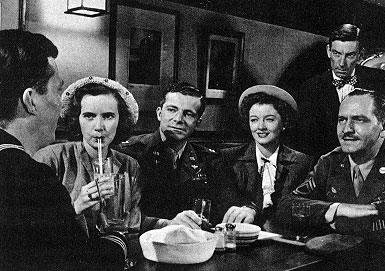
The Best Years of Our Lives by Sarah Kozloff, London: BFI/Palgrave Macmillan, 2011, 110 pp.
Part of my admiration for this intelligent and judicious contribution to the BFI Film Classics — a series that by now may qualify as the most successful and title-heavy book series in the history of film criticism, perhaps in any language — is my conviction, which I share with Kozloff, that William Wyler’s 1946, 171-minute masterpiece about returning American soldiers after the end of WW2 is, existentially speaking, a rare and almost unprecedented act of witness and social conscience for a Hollywood feature.
Many of the best American film critics have been either divided (James Agee and Manny Farber) or chiefly negative (Robert Warshow) about this picture. Interestingly enough, Farber went all the way from an almost unqualified rave in 1946 to calling the movie “a horse-drawn truckload of liberal schmaltz” nine years later – maybe because by then he was rebelling against the Oscar-laden mainstream approval – but I think he was right the first time. (In 1957, he was using his disdain to illustrate the maxim, “No one asks the critics’ alliance to look straight backward at its `choices,’” without clarifying that he was part of that original alliance.)
Read more
From the Chicago Reader (March 30, 2001). — J.R.
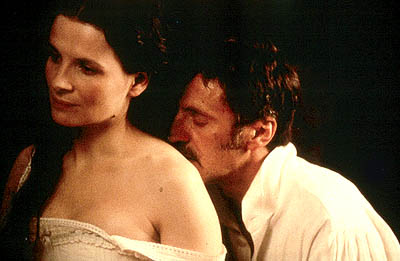
The Widow of Saint-Pierre
**
Directed by Patrice Leconte
Written by Claude Faraldo
With Daniel Auteuil, Juliette Binoche, Emir Kusturica, Philippe Magnan, and Michel Duchaussoy.
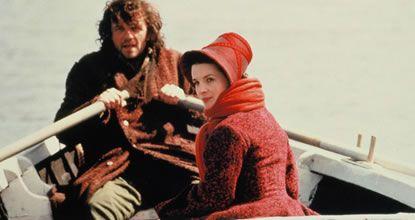
I find that some movies change more than others over repeated viewings, and after three screenings Patrice Leconte’s The Widow of Saint-Pierre slid all the way from near masterpiece to effective piece of distraction. I saw it three times only out of professional duty — after seeing it at a press screening several weeks ago, I led two discussions about it for the “Talk Cinema” film series. I would have been happier seeing it only once, and if you don’t intend to spend a lot of time reflecting on it afterward, The Widow of Saint-Pierre could add up to one good evening.
That may sound condescending, but some moviegoers — including, on occasion, myself — have the attitude that “I don’t like to think when I go to movies; I want to have fun.” It’s depressing that there are people who are willing to say they can’t have fun while they’re thinking — that is, if they’re telling the truth, since I suspect some of them are fibbing, even if they don’t know it. Read more
This originally appeared in Film Comment (September-October 1974). 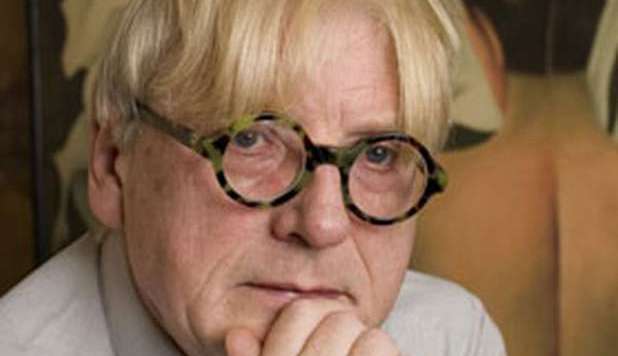
I was shocked in December 2011 to learn of the death of Gilbert Adair, a close friend during the mid-70s (when both of us were living in Paris, and then for some time later, after I moved to London ahead of Gilbert). Although I can’t swear to this, it’s possible that this collaborative interview may be the first thing that Gilbert ever published; at least it’s the earliest piece of his that I know about. With Michael Graham — also, alas, no longer alive — Gilbert and I had subsequently collaborated on a lengthy production piece for Sight and Sound about Rivette’s Duelle and Noroît, recently reprinted in Arrow’s DVD box set devoted to Rivette, available here and here. — J.R.
. 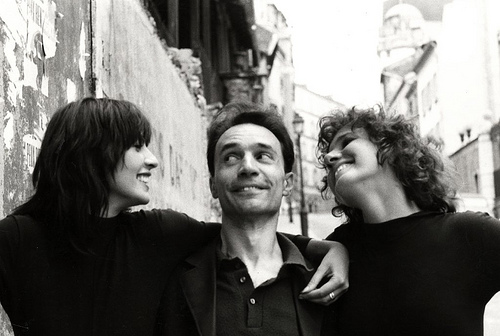
Last June, I invited two of my friends — Gilbert Adair and Lauren Sedofsky — to join me in an interview with Jacques Rivette. All three of us had been dazzled by Céline et Julie vont en Bateau (Celine and Julie Go Boating), to the point of considering it the most important new film we’ve seen in years, and it seemed exciting to extend our folie à trois to a meeting with the director. Read more
From the Chicago Reader (June 14, 2002). — J.R.

The Believer
*** (A must-see)
Directed by Henry Bean
Written by Bean and Mark Jacobson
With Ryan Gosling, Summer Phoenix, Theresa Russell, Billy Zane, A.D. Miles, Glenn Fitzgerald, Elizabeth Reaser, and Dean Strober.
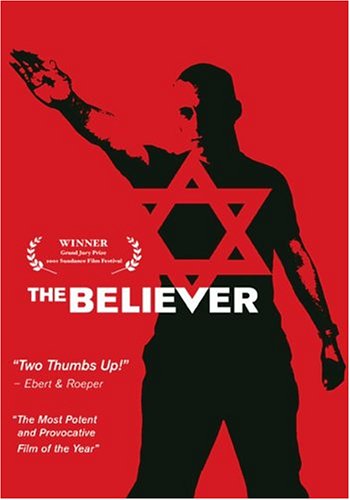
The Believer, an independent feature, premiered on cable nearly three months ago, after failing to get a distributor. But it was recently picked up and is opening this week at Landmark’s Century Centre. It’s already created a good deal of buzz, most of it justified.
Inspired by the real-life story of a 28-year-old Jew in Queens named Daniel Burros, who became a high-ranking member of the American Nazi Party and then of the New York chapter of the Ku Klux Klan before fatally shooting himself when the New York Times ran a front-page story revealing that he was a Jew, the film makes a few educated guesses about the possible origins of such a divided identity, yet it’s entirely to the credit of Henry Bean, the writer-director, and Mark Jacobson, who collaborated on the story, that satisfying psychological explanations aren’t what the film is after. As Bean, a Reform Jew, has suggested in various statements, the film is more precisely an exploration of what it means to be Jewish and what it means to hate — two separate subjects that happen to overlap in this case. Read more











